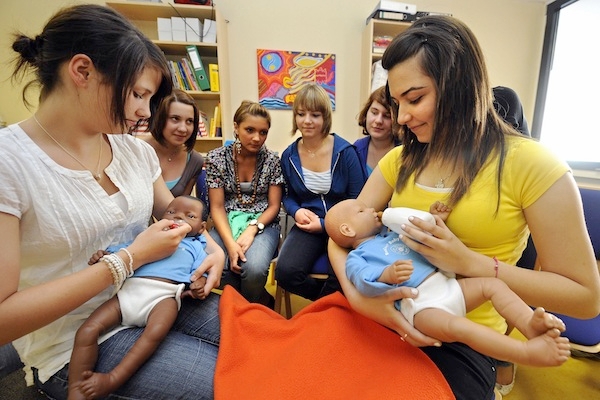Imagine that you’re a passenger in a car driving down a country road at 20mph. All of a sudden the driver hits the accelerator and you’re now zinging away at 60mph. If asked what speed you were going at, what would you say? I’d imagine probably something like 80mph, at least until you became accustomed to your new situation.
Yesterday it was revealed that the British public have some quite wildly inaccurate perceptions about the true level of crime, teenage pregnancy and immigration. Presumably this was seen as evidence that, although the public have conservative views on these subjects, they are misinformed and therefore cool policy reasoning should be left to the experts, who after all have done such a great job at running the country.
It’s true, as Tom Chivers says, that only 5 or 6 in every 1,000 children fall pregnant each year, but that figure was 0.5 in 1959, according to the ONS, and 0.3 in 1955. So if you had lived through the period 1960-1990 you would have witnessed an extraordinary and historically unprecedented rise in underage pregnancy – a 15 fold increase – and you’d probably overestimate how common it was.
Likewise imagine that in your lifetime violent crime had increased by a similar rate; however safe it was, relative to other countries and times, in your area it would probably feel like Detroit.
Violent crime has been pretty steady in Britain since about 1994, and somewhat declined, but from 1955-1992 it rose sharply. With street robberies, for instance, there were more cases in Lambeth in just one year than in the whole of England during the 1930s. If you’d lived through the 1960s and 70s, as the majority of British people alive today have, then your perception of crime will still be that it is very high.
The same goes for immigration, and in particular the size of the Muslim population, which at 4.6 per cent is far lower than what many British people estimate it to be. This is one of the arguments given by people who believe concern about immigration is cooked up by the media.
Yet in 1991 that figure was just 1.86 per cent and in 1961, it was 0.11 per cent. (And by 2030 it will be 8.2 per cent.) With such an increase it is hardly surprising that people overestimate the speed of change – but this doesn’t mean that the driver should ignore the concerns of his passengers.







Comments